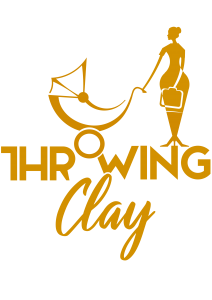
“There is a lie that acts like a virus within the mind of humanity. And that lie is, ‘There’s not enough good to go around. There’s lack, limitation and there’s just not enough. The truth is that there’s more than enough good to go around. There is more than enough creative ideas. There is more than enough power. There is more than enough love. There’s more than enough joy. All of this begins to come through a mind that is aware of its own infinite nature.There is enough for everyone. If you believe it, if you can see it, if you act from it, it will show up for you. That’s the truth.” ~ Michael Beckwith
Stephen Covey in his book, the 7 Habits of Highly Effective People posits the idea that independence is great milestone on the way to success. But it is just that, a milestone. Truly effective (and consequently successful) people are those who learn to be interdependent or collaborative in pursuit of a greater goal. It is the ability “to work effectively with others to achieve optimal results.” He calls it the ability to “Think Win-Win.” It is habit number 4 of the 7.
According to him, these are the broad paradigms of human interaction:
- Win – Every man for himself. Trample the weak and hurdle the dead.
- Win/Lose – the Win/Lose mentality is dysfunctional, often overly competitive and requires the use of power, position, possessions or personality to get one’s way, i.e. your boss uses his authority to impose a potentially stressful deadline on you. “When one side benefits more than the other, that’s a win-lose situation. To the winner it might look like success for a while, but in the long run, it breeds resentment and distrust.”
- Lose/Win – people prefer to keep the peace by giving in or giving up rather than disturbing the relationship. In the long run a build-up of resentment can easily lead to an eventual breakdown of the relationship.
- Lose/Lose – is the philosophy of highly dependent people, and results from the encounter of two Win/Lose individuals. Covey illustrates this case by a divorce in which the husband is ordered by the judge to sell his assets and turn over half of the earnings to his ex-wife. In compliance, he sells his car, worth $10.000, for $50 and gives $25 to his ex-wife.
- Win/Win – as defined above, it is the ability “to work effectively with others to achieve optimal results.”
Think Win-Win isn’t about being nice, nor is it a quick-fix technique. It is a character-based code for human interaction and collaboration. “Win/Win is nice…and tough. It’s twice as tough as Win/Lose. To go for Win/Win, you not only have to be nice, but you also have to be courageous. You not only have to be empathic, but you also have to be confident”. You must tick both boxes because being high on courage and low on consideration is thinking Win/Lose. It’s having the courage of our convictions, but not being considerate about others’ convictions. Being high on consideration and low on courage is thinking Lose/Win. It’s being so considerate of someone else’s convictions and desires that we won’t have the courage to express and realise our own.
Most of us learn to base our self-worth on comparisons and competition. We think about succeeding in terms of someone else failing–that is, if I win, you lose; or if you win, I lose. Life becomes a zero-sum game. There is only so much pie to go around, and if you get a big piece, there is less for me; it’s not fair, and I’m going to make sure you don’t get any more. We get trapped in playing on a level of the game where our level of success will forever be limited. This is called the scarcity mentality.
People with a Scarcity Mentality have a very difficult time sharing recognition and credit, power or profit – even with those who help in the production. They also have a very hard time being genuinely happy for the successes of other people – even, and sometimes especially, members of their own family or close friends and associates. It’s almost as if something is being taken from them when someone else receives special recognition or windfall gain or has remarkable success or achievement.
The Abundance Mentality takes…personal joy, satisfaction, and fulfillment…and turns it outward, appreciating the uniqueness, the inner direction, the proactive nature of others. It recognizes the unlimited possibilities for positive interactive growth and development, creating new Third Alternatives. Public Victory does not mean victory over other people. It means success in effective interaction that brings mutually beneficial results to everyone involved. …Public Victory is an outgrowth of the Abundance Mentality paradigm. A character rich in integrity, maturity, and the Abundance Mentality has a genuineness that goes far beyond technique, or lack of it, in human interaction.”
A person or organization that approaches conflicts with a win-win attitude possesses three vital character traits:
- Integrity: sticking with your true feelings, values, and commitments
- Maturity: expressing your ideas and feelings with courage and consideration for the ideas and feelings of others
- Abundance Mentality: believing there is plenty for everyone
A person with an abundance mentality not only succeeds in life but also gains the respect and buy-in of others along the way. An example that comes to mind for me is Obama v Trump.
